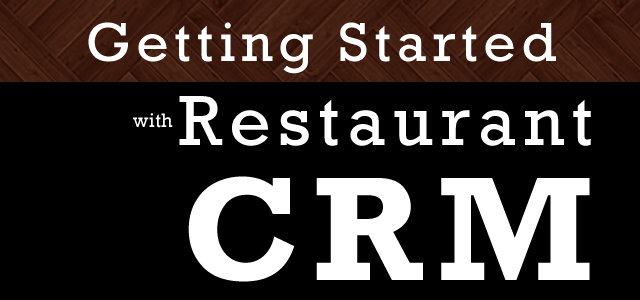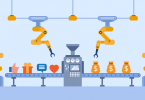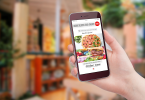This is the third article in our series on Restaurant CRM and how it can help you connect with guests. Our overview of Restaurant CRM, which is part one in the series, can be found here to get caught up. Part two featured 5 companies that can help.
I understand there’s great fear about making the restaurant business a data-driven business.
And yet, the time has come for operators to blend in what they know, through data, and what they sense, through feel and gut, to make better decisions in running their restaurant.
In any given day, restaurant managers make a variety of decisions that directly impact the operation of their business. Some of these decisions prove to be wildly successful, and others, well, not so much. One area where managers risk a lot is with their marketing dollars. If a program fails, then they’ve wasted the money and usually get a tongue lashing from upper management and or the company’s owners.
Educated decisions with restaurant CRM > gut feel
What if you had the opportunity to level the playing field and instead of being risky with your marketing decisions, you were able to make educated decisions that have a higher chance of being successful versus the endeavors that are a crapshoot?
Ask any marketer what’s the most important thing to them when it comes to marketing, and many will tell you that being able to measure the effectiveness of campaigns is paramount. As the old adage goes, “Knowledge is power.” If you’re able to glean insights into your customers and tailor marketing messages to them and their unique needs, you’ll be more successful.
CRM gives you an amazing advantage and a much better way to measure the effectiveness of your marketing.
John Costello, President, Global Marketing and Innovation for Dunkin’ Brands had this to say about the importance of data:
“The power of this data is that we know sales by store, by SKU, by hour. We know what the sales are of all the product categories. This enables us to geo-target offers — so in the Northeast, for example, where there are strong beverage sales, we can build ticket by offering deals on bakery sandwiches.”
Companies that have loyalty programs will get even more detailed information about their customers and their behaviors. Restaurants could leverage that knowledge into utilizing more targeted marketing efforts, making smarter marketing decisions, or streamlining operations.
Let’s take a look at an example
Let me introduce you to Paul and his wife Char. Paul and Char don’t have any children and like dining out. There are two restaurants where Paul and Char dine, both with very similar menus: Restaurant Alpha and Restaurant Bravo.
Lately, the couple have been patronizing Restaurant Bravo more frequently because each week, Char gets a tailored email talking about the week’s specials and inviting them to try a specific dish. What’s more, Paul and Char are members of Restaurant Bravo’s loyalty program, giving Restaurant Bravo valuable insights into their dining behaviors.
The restaurant knows that Paul and Char are big fans of seafood and when it created a new “Captain of the Sea” seafood platter, it sent them an email inviting them to try the new dish with a coupon for a few dollars off the price. Restaurant Alpha unfortunately doesn’t have a loyalty program or a way to measure or track their customers. Consequently, they’re missing sales opportunities.
Is it clear how powerful this is, yet?
In the example above, you can see the benefit of knowing your customers and tailoring offers specifically for them. Here are some other ideas for making better marketing decisions with CRM:
- Send mailings to customers who haven’t patronized your restaurant recently with a special offer to return
- Send tailored menu features to customers who like similar items. Maybe they enjoy the Halibut but haven’t tried the Monkfish
- Invite weekend regulars for a “special” happy hour during the week
- Suggest a higher profit item that falls in the same category of what the guest usually orders (think strip steak to rib eye)
- Send tailored birthday or anniversary offers inviting guests to celebrate with you
- Having servers make suggestions to guests based on past dining history
Any business can blast messages into the ether and hope for some sort of response. Businesses, especially restaurants that are able to tailor their marketing messages to their specific customer will find that their targeted marketing messages will be more successful than those that are just blasted.
Data doesn’t make things impersonal; it’s just the opposite
As we saw in the example above, Restaurant Bravo was having success with their marketing endeavors by tailoring their messages to their specific customers. Their CRM provider allows them to easily customize their messages and target them to specific customers.
Restaurant Alpha hasn’t embraced the emergence of CRM and instead uses only traditional media to get its message out. While it has ok business, it’s nowhere near as consistent as Restaurant Bravo. In addition, they’re struggling with maintaining repeat business as evidenced in the example.
Summarizing…
The key takeaways from today’s post are:
- CRM allows you to target your message to specific audiences
- Tailored / targeted marketing messages reap better rewards than blasted messages
- Knowing your customer presents an opportunity to upsell them to more profitable items that still satisfy their likes
Restaurant CRM gives your restaurant great insights into your customers. Most of the CRM services that are available give you a variety of tools to segment and customize messages to a targeted audience. Taking advantage of those tools will lead to increased conversions and a solid way to measure the effectiveness of the marketing.
Establishments that don’t use a CRM system have a difficult time tailoring their message and find themselves wasting precious marketing dollars.
In the next CRM installment, we’ll talk about making better operational decisions using CRM.







